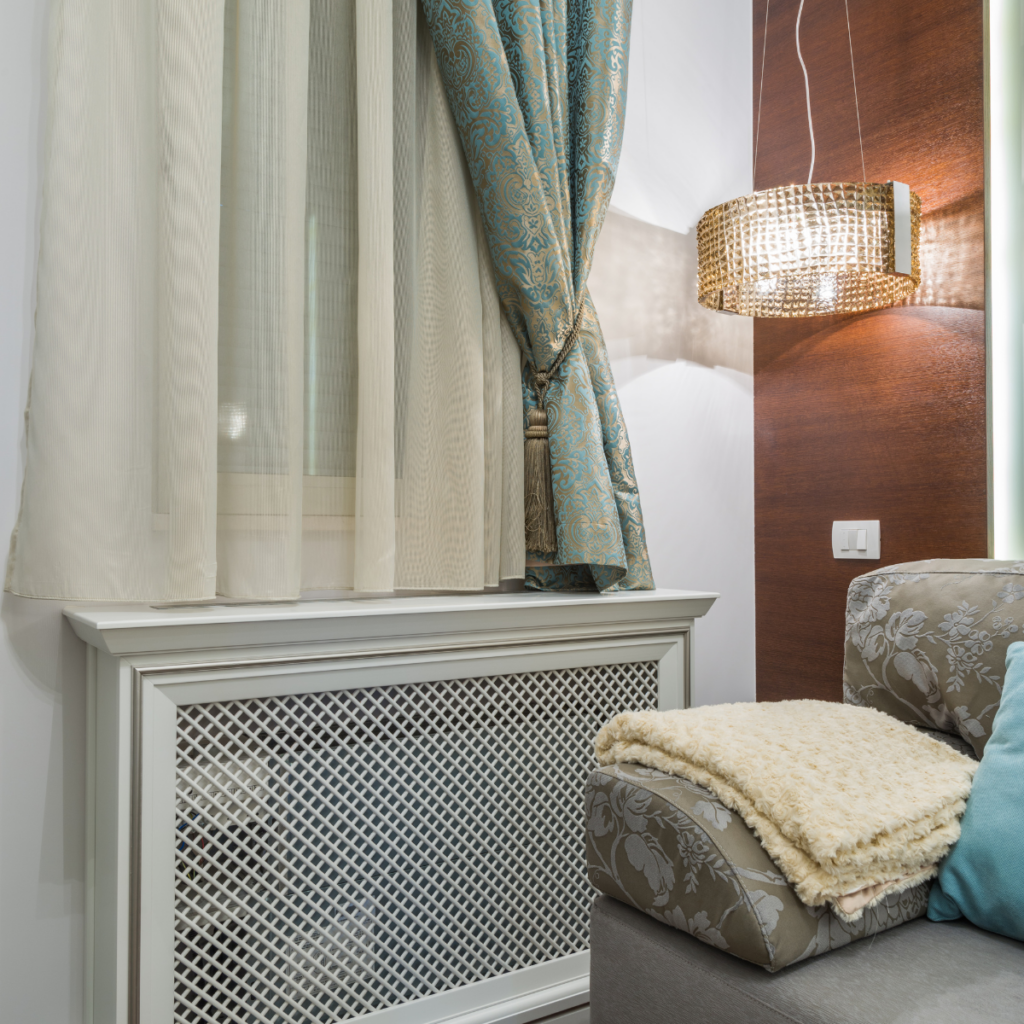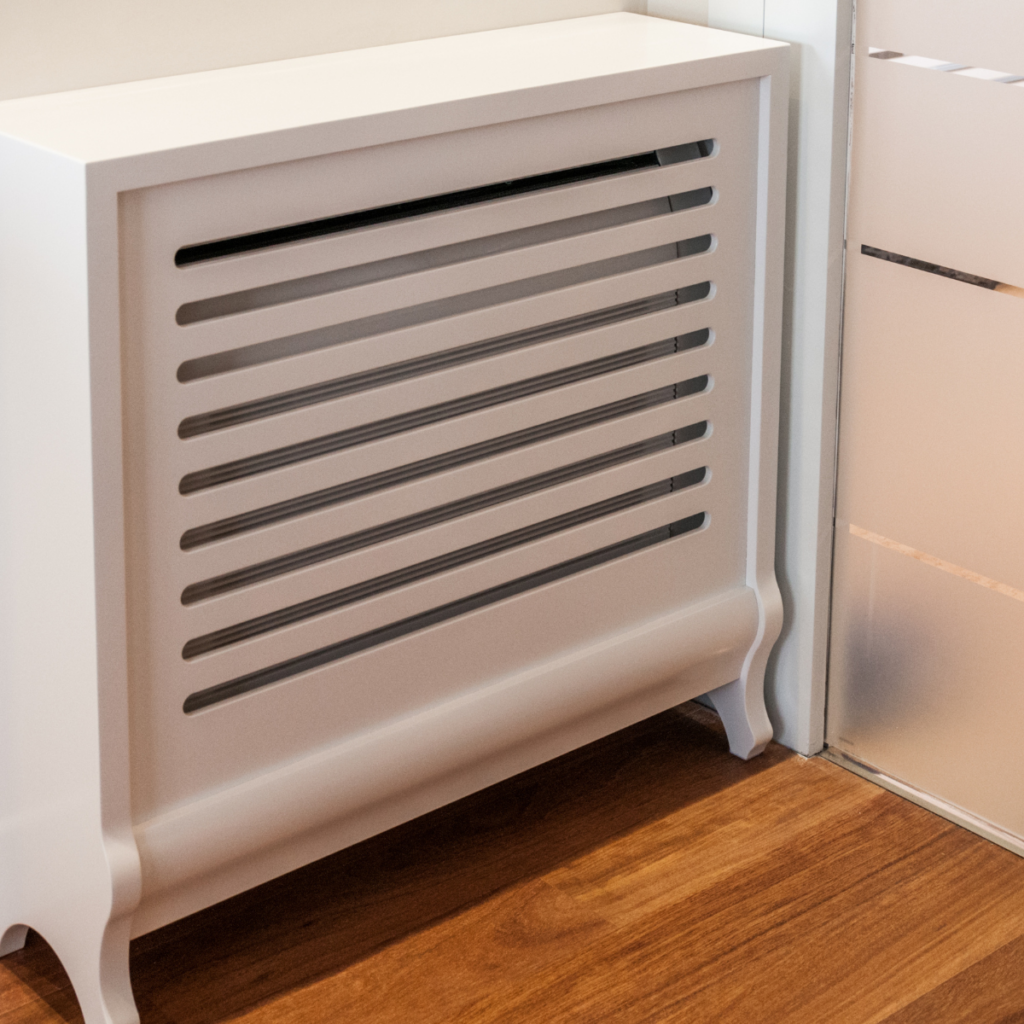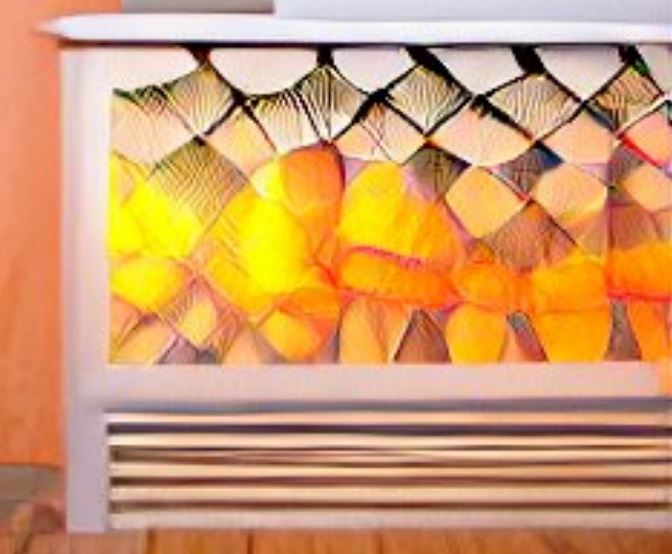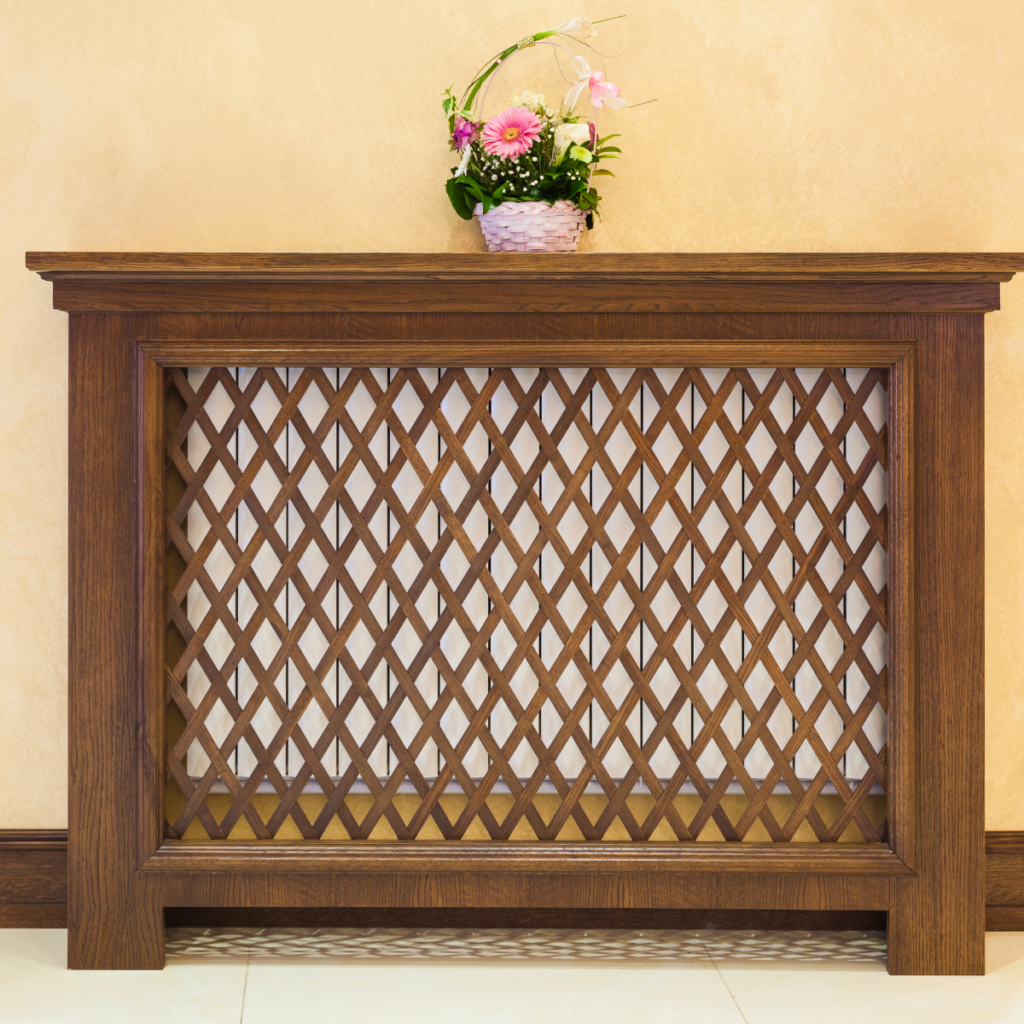Radiator covers can block heat in your home if not designed or fitted correctly. Some people like to make their own radiator covers and cabinets so we outline what you need to consider with radiator covers.
Do radiator covers block heat getting out?
Radiator covers do not stop heat travelling through if designed properly. Purpose built radiator covers have slots and gaps in them that leave plenty of space for heat to go through and enter the room. In fact, well designed radiator covers dissipate the heat more effectively around the room.
If completely covered, warm air will be blocked from rising through convection and deflect back downwards, reducing the efficiency and purpose of a room radiator.

What is a radiator cover?
Room radiators can often be covered to hide its presence in the room. mostly made from wood, the cover of the radiator can range from just a shelf to a full cabinet hiding the entire radiator from view. They are designed to protect the radiator from damage, reclaim some space above the radiator and look elegant at the same time.
While it is true that they can prevent some heat loss, most of the heat that is emitted from the radiator is still able to pass through the cover. In fact, many radiator covers actually have vents or openings that allow air to flow freely around the radiator, which helps to dissipate the heat more effectively.
Advantages of radiator covers
Radiator covers are a great way to improve the look of your home while also providing a number of benefits:
- They can help to protect your radiators from damage.
- They hide radiators that don’t blend with room decor.
- keep your home warmer, and reduce noise levels.
- They also prevent burns from accidental touching of hot radiators.
- They utilise space around the radiator.

How much heat is reduced with radiator covers?
The answer to this question is, unfortunately, not as straightforward as we would like it to be. While a cover will certainly reduce the amount of heat lost from the radiator, exactly how much heat is lost will depend on a number of factors. These include the type of cover used, the size of the radiator, and the temperature of the room.
That said, there are some general guidelines that can help you estimate how much heat is lost with a cover. For example, thin covers made of materials like glass or plastic will do little to reduce heat loss. Conversely, thicker covers made of materials like wood or metal will offer better insulation and therefore result in less heat loss.
When measuring for a radiator cover, make sure to leave at least 3cm each side of the radiator to cover the pipes and to allow the free movement of air around the room.

Alternatives to radiator covers to avoid reducing heat
If you’re looking for a way to keep your home warm this winter, don’t rely on radiator covers to do the job. Instead, focus on other methods of insulation such as weatherstripping and draft stoppers. These will be much more effective.
Is it safe to cover a radiator?
There are a few potential consequences and dangers to cover radiators. It is important to make sure that the cover you use is safe.
The cover should be made of a material that allows the radiator to release heat adequately. If the cover is not breathable, it could cause the radiator to overheat and potentially catch fire.
Additionally, covers can also prevent you from shutting off the radiator quickly in case of leaks. For example, with a valve leaking, you may find it hard to get to the valve to close it. It may not be easy to bleed a radiator if the bleed valve is covered.

